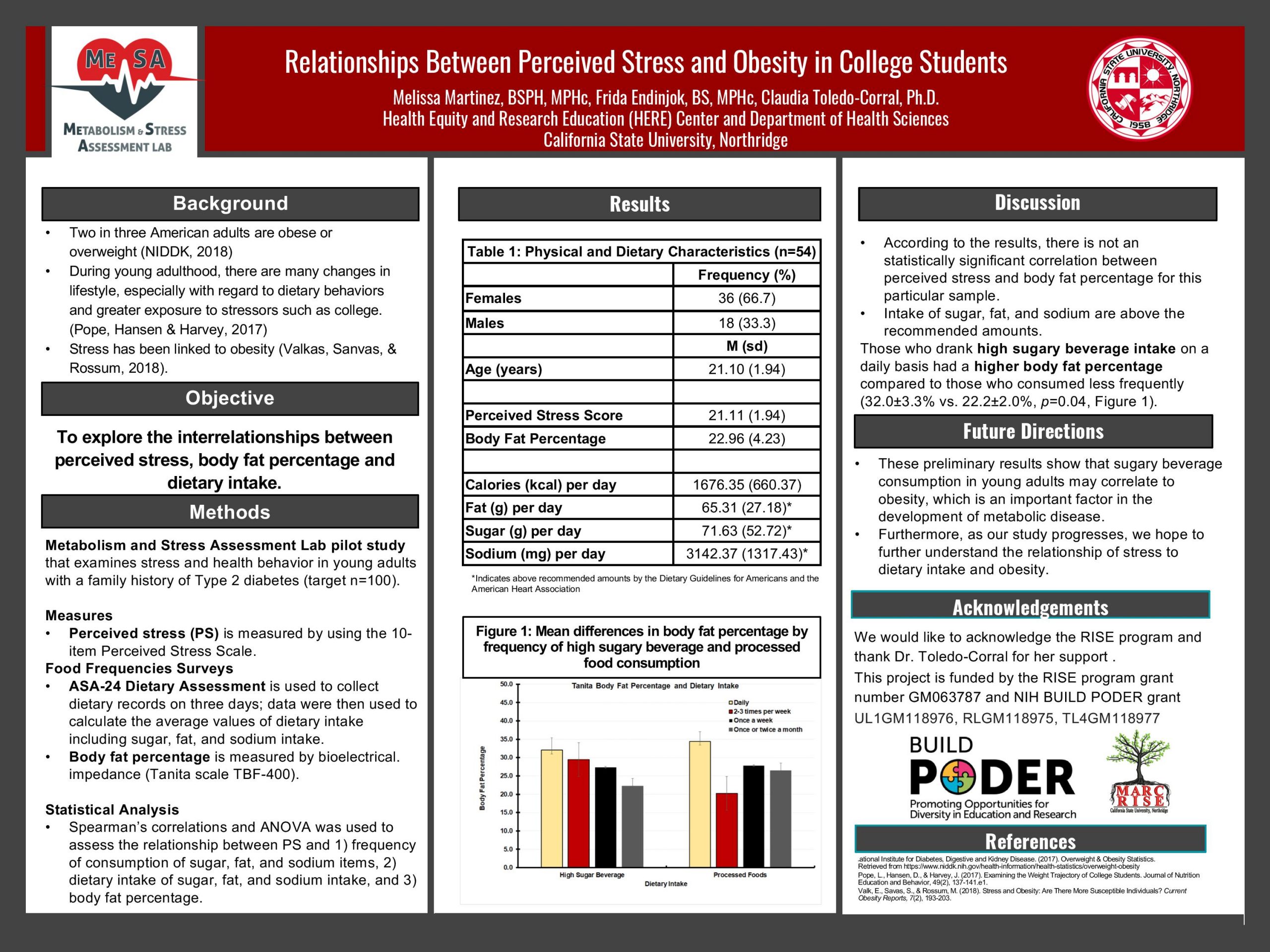Frida Endinjok, BS, Melissa Martinez, BS, Claudia Toledo-Corral, PhD, Health Sciences, California State University, Northridge, Northridge, CA
Background and Objective:
Two in three American adults are obese or overweight. During young adulthood, there are many changes in lifestyle, especially with regard to dietary behaviors and greater exposure to stressors such as college. Historically, young adults are an understudied population. For this reason, the objective of this study is to explore the interrelationships between perceived stress, body fat percentage and dietary factors such as sugar, fat, and sodium intake.
Methods:
Our measures were derived from the on-going Metabolism and Stress Assessment Lab pilot study that looks at young adults with a family history of Type 2 diabetes (target n=100). Perceived stress (PS) is measured by using the 10-item Perceived Stress Scale. The food frequency questionnaire is used to assess the frequency of high sugar meals and drinks, as well as intake of processed foods. The ASA-24 is used to collect dietary records on three days; data were then used to calculate the average values of dietary intake including sugar, fat, and sodium intake. Body fat percentage is measured by bioelectrical impedance (Tanita scale TBF-400). For the analysis, we ran Spearmanʼs correlations and ANOVA to assess the relationship between PS and 1) frequency of consumption of sugar, fat, and sodium items, 2) average dietary intake of sugar, fat, and sodium intake, and 3) body fat percentage.
Results:
In our current sample (n=24, age range: 18-25 years), PS was not related to average dietary intake of sugar, fat, and sodium, or body fat percentage. However, those who drank high sugary beverage intake on a daily basis had a higher body fat percentage compared to those who consumed less frequently (35.2±2.8% vs. 24.6±2.0%, p=0.02).
Conclusion:
These preliminary results show that sugary beverage consumption in young adults may be a correlate to obesity, which is an important factor in the development of metabolic disease. Furthermore, as our study progresses, we hope to further understand the role of stress to dietary intake and obesity.
*This poster was presented at The American Psychosomatic Society annual meeting. The sample size reflects that of March 2020.
